19 Vintage War Planes on Display
Paul Allen's obsession with vintage aircrafts dates all the way back to his childhood. He was always fascinated by the complexity and designs of the different planes. The co-founder of Microsoft decided to turn his childhood hobby into a lifelong collection, which he began in the late 1990s.
Allen opened up a museum in 2004, which features over 31 of his most cherished aircrafts. 19 are featured here. The museum is located in a hangar in Everett, Washington. It is called the Flying Heritage Collection. Make sure you drop by if you're ever in town!
1) The MiG-29 Fulcrum
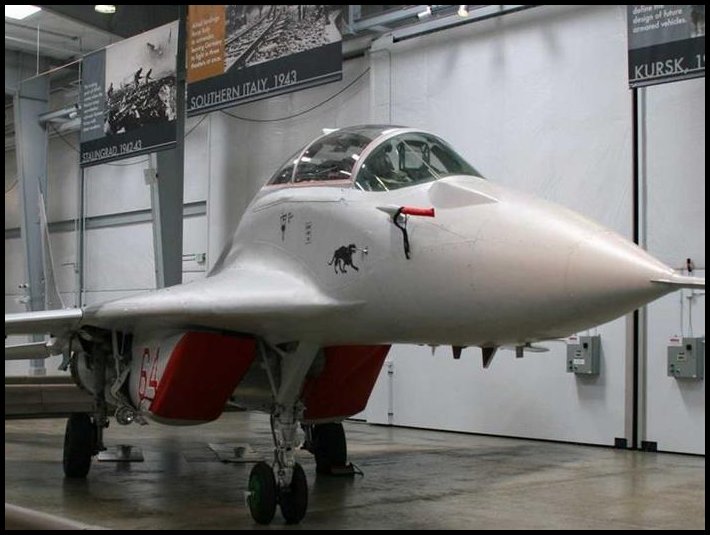
The MiG-29 Fulcrum was The Soviet Union's move to counter U.S. fighter pilots, during the late 1970s. It was built to combat such jets as the McDonnell Douglas F-15 Eagle, and the General Dynamics F-16 Fighting Falcon. The fighter aircraft was created by Mikoyan Design Bureau.
2) The Russian Ilyushin Il-2
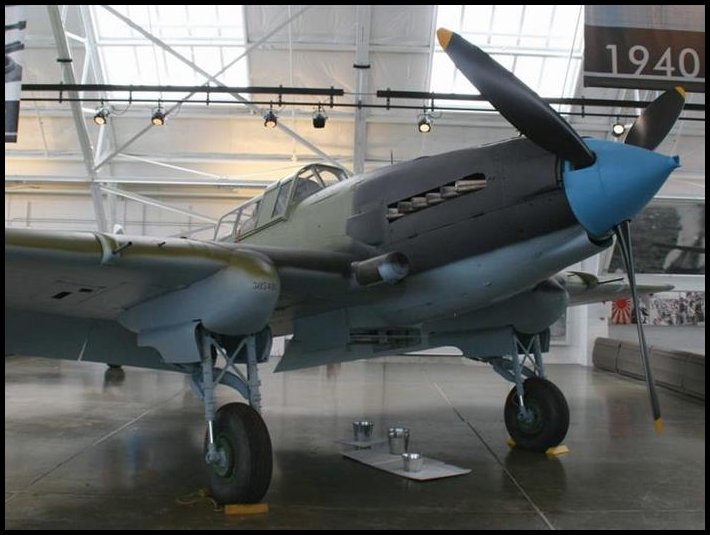
The Il-2, more commonly referred to as "Black Death" and "the Flying Tank" by soldiers, due to its heavy armor protection. The Flying Tank was virtually impossible to shoot down by enemy fighter planes. The model seen here had crashed in 1944 after it had been struck by anti-aircraft fire. It was found in lake by a few boy scouts in 1991, still carrying rockets and bombs, which were attached to its wing.
3) The Messerschmitt BF 109 E-3
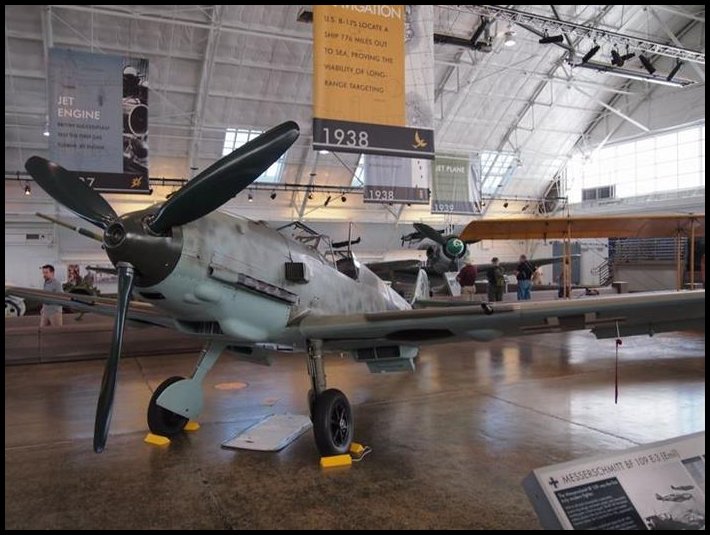
The Messerschmitt was built in Germany in 1939 and piloted by Eduard Hemmerling. Hemmerling shot down several British planes before eventually taking fire, and crashing off the coast of Cape Blanc Nez, in France. The model seen here was discovered by a man walking alongside the beach of Calais, who spotted the wing of the plane from beneath the sand in 1988.
4) The Supermarine Spitfire
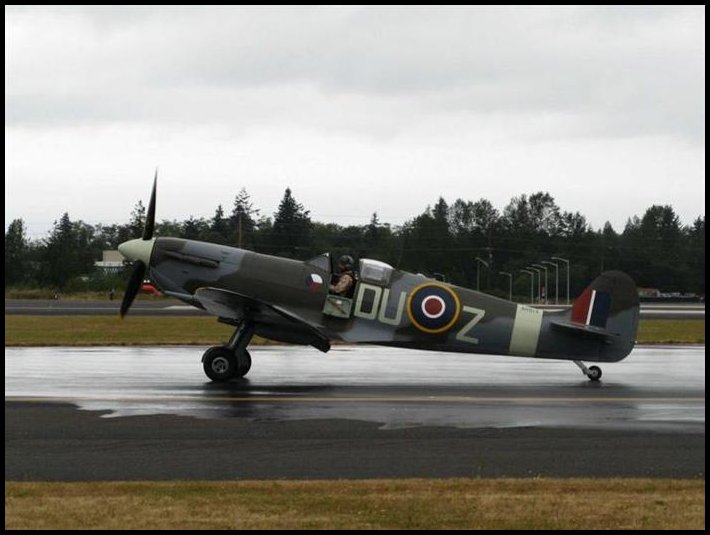
The Supermarine Spitfire was Great Britain's response to the Messerschmitt fighter plane in the early 1940s. The aircraft was manufactured by Supermarine, which featured an elliptical wing pilots dubbed "a ballerina in flight." It was given the ballerina reference due to its easy maneuverability. The Supermarine Spitfire was said to have won the Battle of Britain. The model here was fully restored after it had received enemy fire during a raid on enemy territory.
5) The Hawker Hurricane
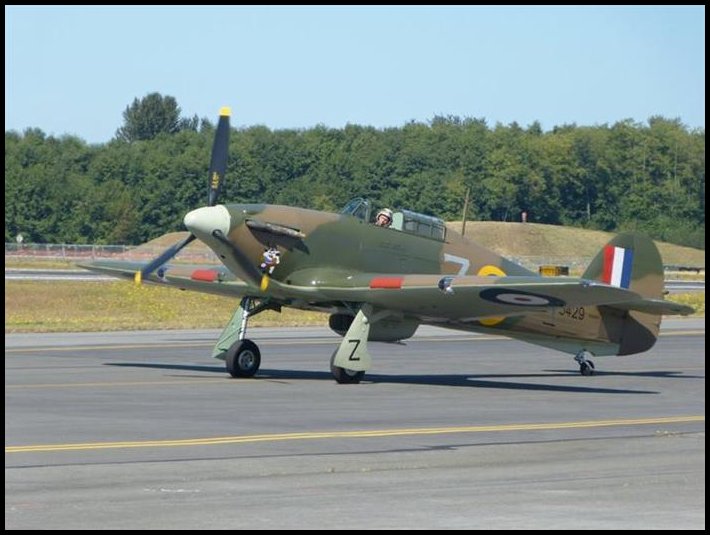
The Hawker Hurricane was instrumental for helping Great Britain destroy more enemy aircraft than the Spitfire during WWII. Many historians believe that the Hawker was Great Britain's secret weapon for victory during the war. This model never saw any action. The Hawker Hurricane was delivered to the Royal Canadian Air Force in 1942, and recently recovered from a farm in Ontario.
6) The Messerschmitt 163 Komet
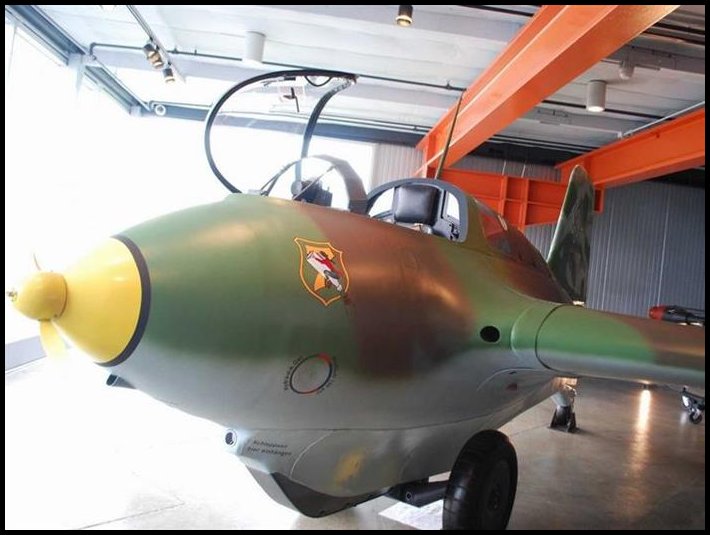
The Komet was a rocket-propelled fighter, built specifically to destroy high altitude bomber planes. The bomber's fatal flaw was the Walter rocket motor, which had a tendency to explode in flight. It was, however, a breakthrough in technology at the time. The model seen here is only one of a dozen Me 163 fighter planes known in existence.
7) The Fieseler Storch
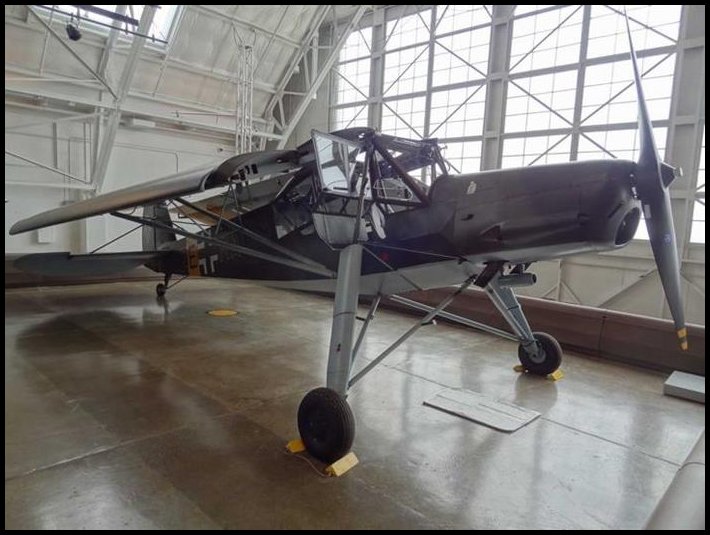
Storch is German for stork, and the plane had derived its name from the aircraft's bird-like wings. What really made the Storch unique was its wings, which could be folded down, and transported via train. The Storch once rescued Benito Mussolini from a prison rooftop in 1943, and even served as a form of transportation for Adolph Hitler. The model seen here was found in East Germany, sometime in the mid-1980s, and fully restored since.
8) The Focke-Wulf 190
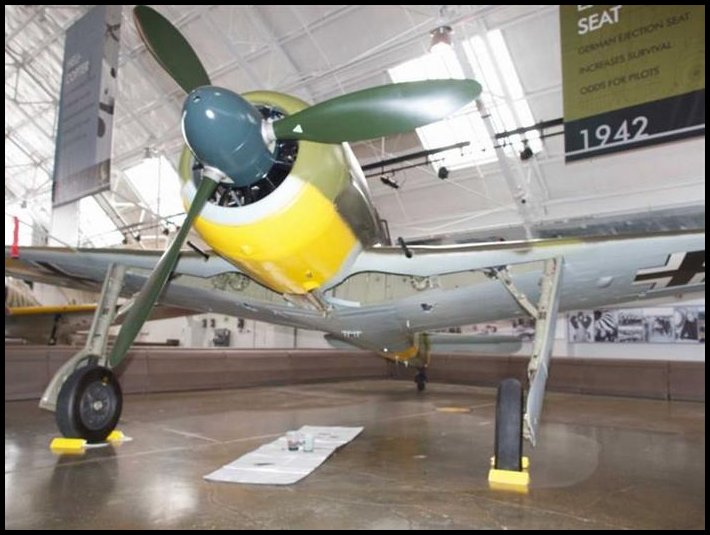
For its time, the Focke-Wulf 190, was the most advanced radial engine fighter plane in the world. The unique design of the bomber allowed it to fly during ground attacks. German pilots had praised the Wulf for its low-altitude flying abilities. The plane seen here was discovered by a hunter, sometime in the mid 1980s in Russia, and then transported to the United Kingdom, where it was restored. Remarkably, it had remained fully intact, despite crashing in a field.
9) The Russian Polikarpov I-16
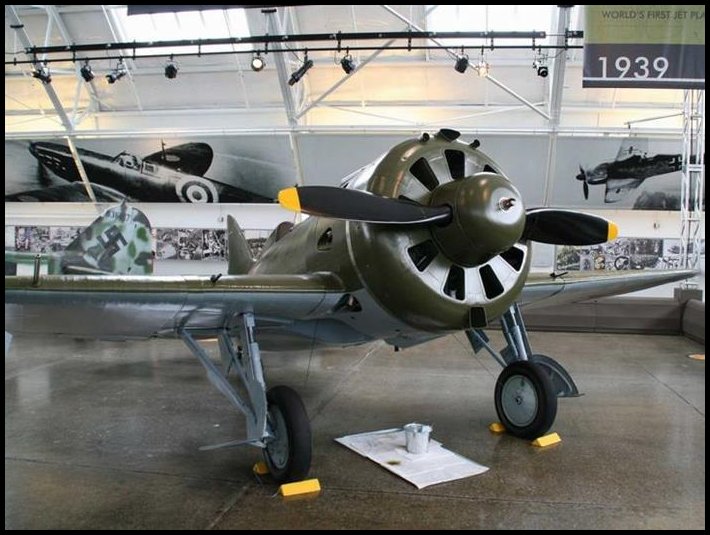
The Polikarpov, nicknamed Rata or "rat", was actually the first single-winged fighter plane with retractable landing gear in the world. The plane was named after Nikolai Polikarpov, who built the Rata under strict supervision from Soviet dictator, Joseph Stalin. Stalin wanted a superior aircraft to help lead the Red Air Force in combat. The model seen here was discovered in 1991, in the same factory where it had originally been manufactured.
10) The Japanese Mitsubishi A6M Zero
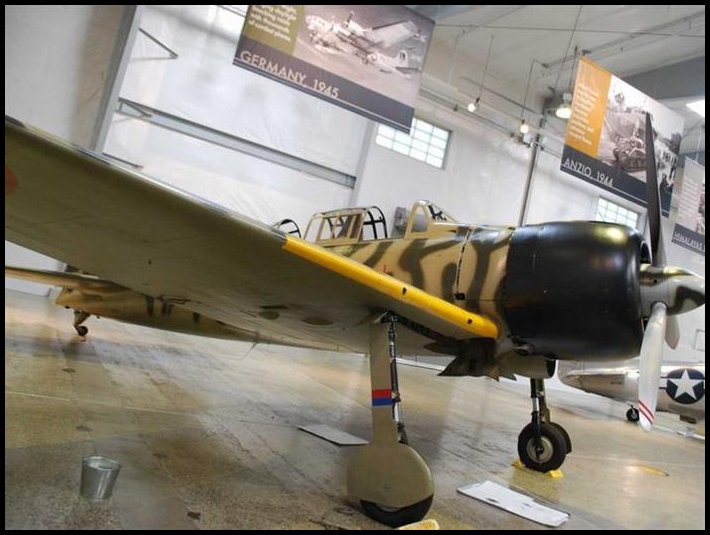
What made the Zero truly unique, was its ability to outmaneuver ally fighter planes, due to its radius and lightning quick speed. Its main flaw was its lack of armor, which gave enemy planes a better chance to shoot it down, assuming they could catch up with it! The Zero model seen here was recovered in New Zealand, sometime after WWII. It has since been fully restored to fly again.
11) The Focke-Wulf FW 190 D-13 (DORA)
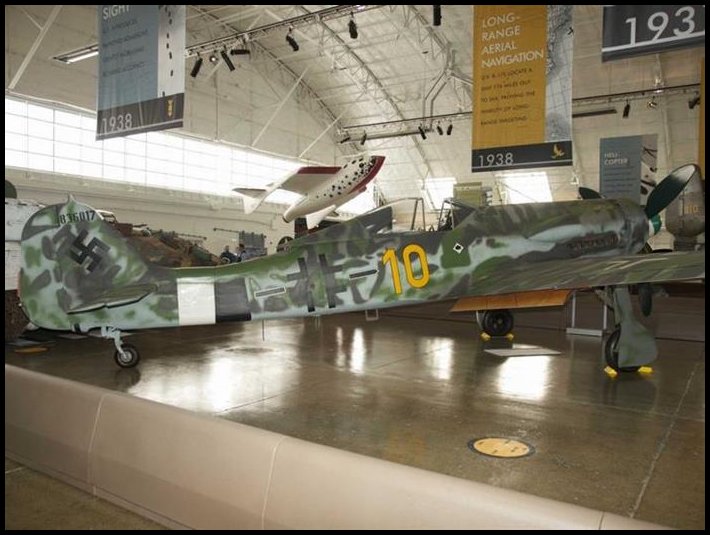
The Focke-Wulf 190 made its debut in 1937 and rivaled the British Spitfire, even proving to be far superior to it. The FW-190 was a supreme killing machine, even taking on the nickname of "Würger", which means "Butcher Bird." The model seen here is the only known FW 190 D-13 to survive the war. The plane is fully functional to fly, but will never leave the ground, since it's extremely rare.
12) The Polikarpov U-2
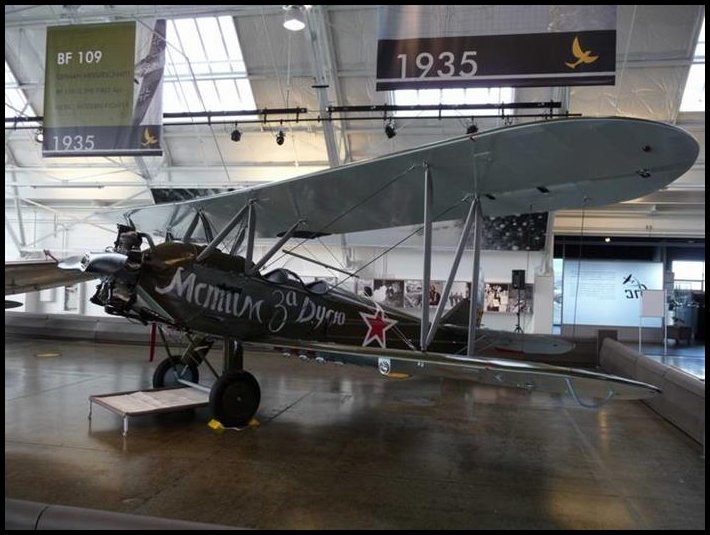
Prior to WWII, the PO-2, was initially designed as a crop duster, and gained fame from the female Russian pilots who operated them. The women would navigate the planes at night on German camps. The attacks left minimal damage to the enemy bases but proved to be effective in that it kept German troops awake at night. The fact that the pilots were women, also caused a stir among the German troops. The model seen here was recovered in Belarus, and later restored by the Polis Aero Club.
13) The P-40C Tomahawk
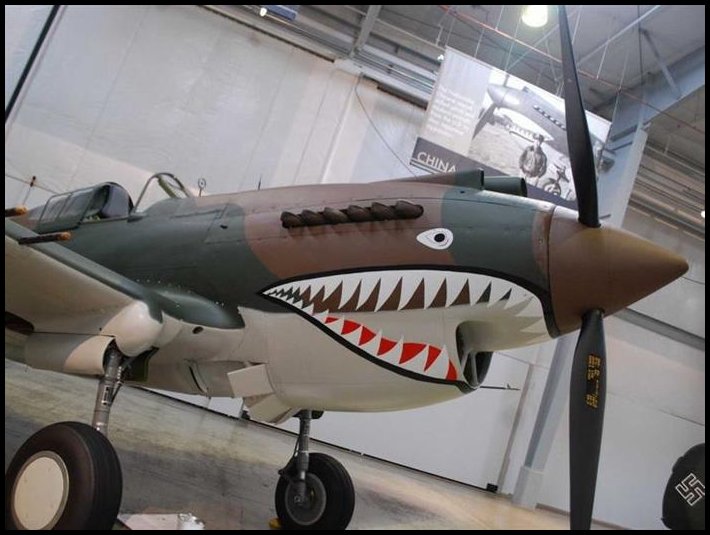
The P-40C Tomahawk had replaced its older sibling, the P-36. What made the P-40C so special was the fact it remained cost efficient to produce, and could be dispatched in a hurry if needed for the war. The shark mouth design made it even more unique, which was the preferred design by the Flying Tiger squadron. The model seen here was made in the USA, and remains the only P-40C in flying condition today.
14) The Grumman Hellcat
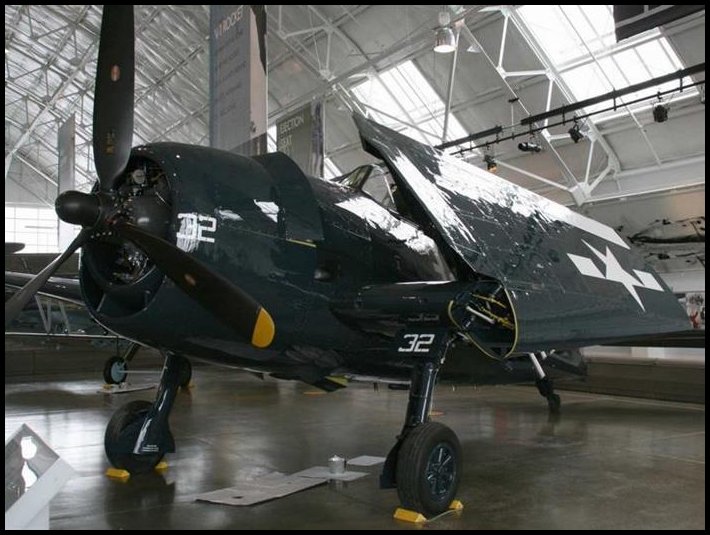
The Hellcat was considered one of the best fighter planes in the Pacific. The Hellcat's ability to withstand enemy fire led pilots to nickname it the "Aluminum Tank." It was built to outperform the Japanese Mitsubishi Zero-Sen. The Hellcat could fold its wings for hangar and deck storage. The Grumman manufacturing company was able to produce a Hellcat per hour, which was a feat never duplicated to present day. The model seen here is only one of a few remaining in the world.
15) The P-51 Mustang
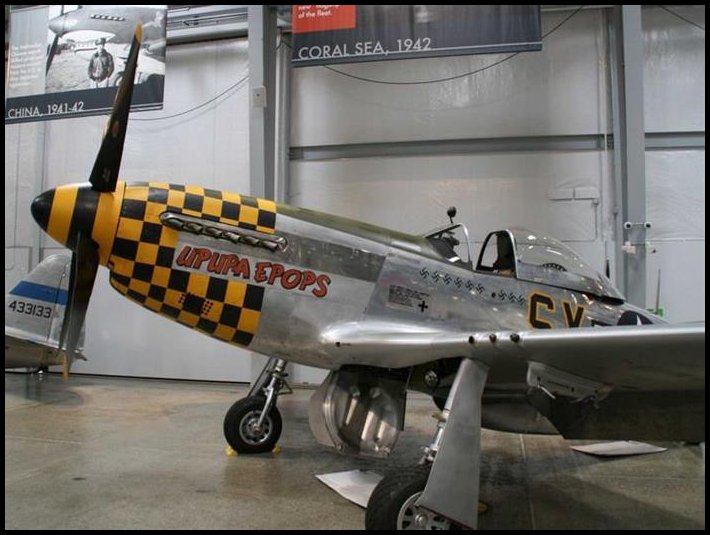
The Mustang was the fighter plane said to have won the war in Europe. Lt. Harrison B."Bud" Tordoff had been assigned to conduct the daylight raids against Germany, even helping many Ally ground forces all across Europe during the war. The plane was stored in Raydon, England. The P-51 was fitted with a Rolls Royce Merlin engine, and a very far extended range of fire. Lt. Tordoff was reunited with his former "baby" during a visit to Allen's museum in 2003.
16) The Curtiss JN-4 Jenny
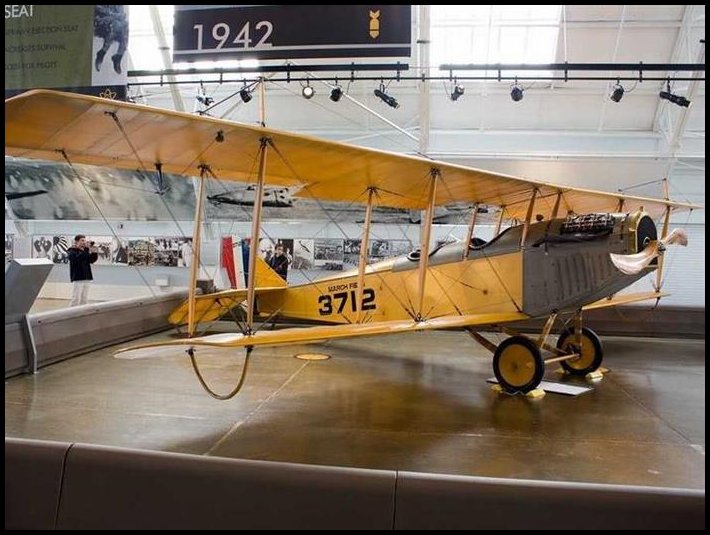
Jenny was the brainchild of American engineer, Glenn Curtis in 1917. The plane wasn't anything special in terms of features, but it was lost cost to produce. Many U.S. and Canadian fighters were trained to pilot the Jennys, but never made it into combat. The planes were then used to entertain people at flight shows after the war. The daredevil pilots would even go so far as to take audience members along for the ride. The Jenny seen here was made in 1918, and remains one of very few in existence today.
17) The Nakajima "Oscar" Plane
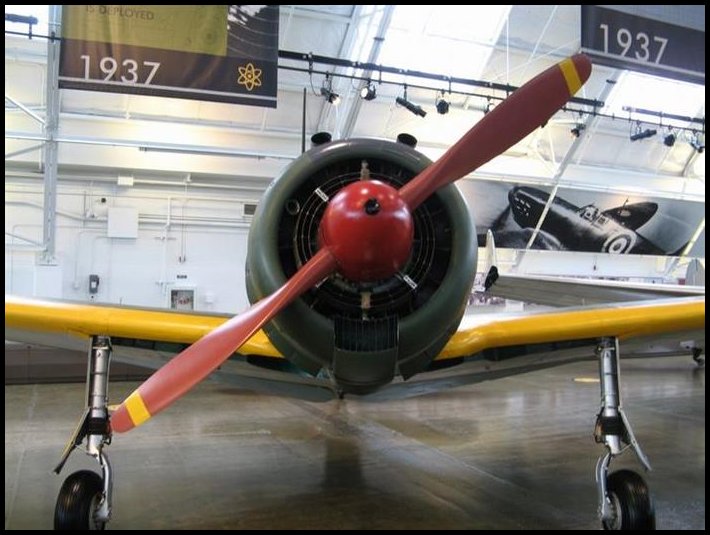
The Kamikaze pilots of Japan had favored the lightweight fighter planes for their ease of maneuverability. Although the Oscar planes were easy to navigate, they didn't serve much use due to their slow speed, and limited firepower. The Oscars brought down many American fighter planes during World War II. The model seen here was found in Rabaul, Papua New Guinea. Ironically enough, the plane was repaired by former Japanese soldiers, from parts of salvageable Oscars.
18) The North American B-25J Mitchell
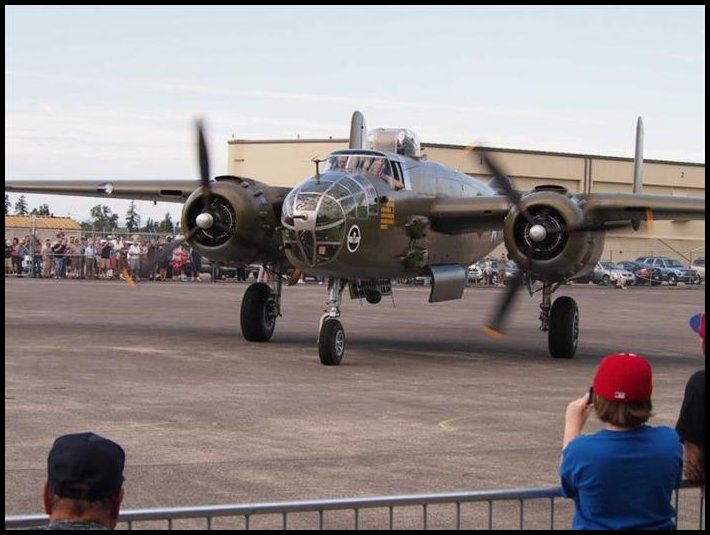
The B-25 gained fame when it became the first American aircraft to bomb the Japanese mainland. The B-25 was assigned to Lt. Col. Jimmy Doolittle, who took off from the Hornet air carrier in 1942, en route to Japan. The bombers made their way all across the Pacific, armed with enough firepower to sink a small sea vessel. The U.S. Army kept the vast majority of the B-25's, and used them as transports and trainers. The model here was built in 1944, and served the Royal Canadian Air Force for a decade until it was sold in 1961.
19) The P-47D Thunderbolt
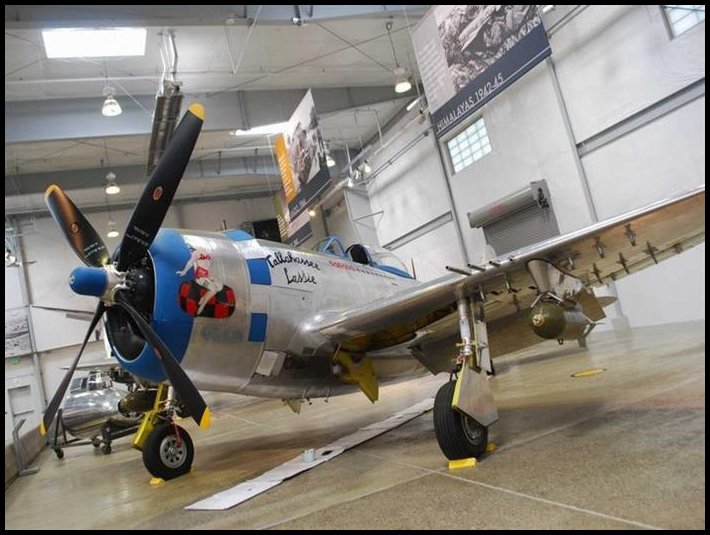
One look at this gigantic, seemingly indestructible aluminum frame and you can tell why many U.S. fighter pilots flew it. The Thunderbolt engine was considered "unbreakable", and the plane even consisted of .50-caliber machine guns and heavy armor. The U.S. Army Air Corps manufactured the Thunderbolt in 1940 for the upcoming European war. The model seen here was constructed by the Republic Aviation in Evansville, Indiana. It had remained in storage until 1948. The Thunderbolt features the trademark "Tallahassee Lassie" logo, and was piloted by Col. Ralph C. Jenkins